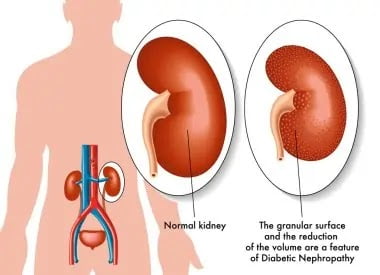Heart disease has long been a leading cause of mortality worldwide, affecting millions of lives. However, in recent years, there have been incredible advancements in the field of cardiac care, leading to revolutionary breakthroughs in heart disease treatments. These medical milestones transform how heart conditions are diagnosed, managed, and treated, giving patients new hope and improving outcomes. In this article, we will explore ten game-changing breakthroughs reshaping the future of heart disease treatment.
Understanding Heart Disease
Before diving into the breakthroughs, it’s essential to understand what heart disease is and its different types. Heart disease refers to a range of conditions affecting the heart’s structure and function, including coronary artery disease, heart failure, arrhythmias, and heart valve problems. These conditions can significantly impact a person’s quality of life and, in severe cases, become life-threatening if left untreated.
Breakthrough #1: Development of Minimally Invasive Procedures
One of the most significant advancements in heart disease treatment is the development of minimally invasive procedures. Traditional open-heart surgeries often involve large incisions, extensive recovery periods, and increased risks. Minimally invasive approaches, on the other hand, utilize smaller incisions, leading to faster recovery times and reduced complications.
Exploring Minimally Invasive Approaches
Robotic heart surgery stands out for its precision and minimal scarring among the various minimally invasive procedures. By using robotic arms controlled by the surgeon, intricate cardiac procedures can be performed with enhanced precision, allowing for better outcomes and shorter hospital stays.
Breakthrough #2: The Rise of Wearable Technology
In the age of technology, wearable devices have emerged as powerful tools for managing heart health. These devices, worn as bracelets, chest straps, or smartwatches, offer continuous monitoring and real-time data collection, providing valuable insights into heart rate, blood pressure, and activity levels.
Wearable Devices and Their Impact on Heart Health
Continuous monitoring allows individuals to have a better understanding of their heart health throughout the day. With real-time alert systems, dangerous conditions such as arrhythmias can be detected promptly, enabling timely intervention and potentially saving lives.
Breakthrough #3: Advancements in Telemedicine
Telemedicine has revolutionized healthcare delivery, and cardiology is no exception. Telecardiology enables remote consultations and brings specialized cardiac care to underserved areas. With the help of technology, patients can consult with renowned cardiologists without the need for physical travel.
Telecardiology – Breaking Physical Barriers
Remote consultations allow prompt diagnoses and appropriate treatment plans, making cardiac care more accessible to people who live in remote locations or have difficulty traveling due to their condition. Telemedicine also plays a crucial role in post-surgical follow-up, reducing the need for frequent hospital visits.
Breakthrough #4: Precision Medicine in Cardiology
The field of precision medicine has gained significant momentum in recent years, offering personalized treatment plans that are tailored to each patient’s unique genetic makeup, lifestyle, and specific disease characteristics.
Personalized Treatment Plans
With precision medicine, cardiologists can identify specific genetic markers associated with certain heart conditions, enabling early detection and intervention. This approach allows for targeted therapies that aim to address the root causes of heart disease, ultimately improving patient outcomes.
Breakthrough #5: Stem Cell Therapy for Heart Regeneration
Regenerative medicine, particularly stem cell therapy, has emerged as a promising field in heart disease treatment. Stem cells can differentiate into various specialized cell types, making them essential in repairing and
restoring damaged heart tissue.
Regenerative Medicine and Stem Cells
Stem cell therapy involves injecting stem cells into the damaged areas of the heart, stimulating the growth of new blood vessels, and repairing cardiac muscle. This groundbreaking technique holds immense potential in myocardial regeneration and may revolutionize the treatment of heart disease in the future.
Breakthrough #6: Artificial Intelligence (AI) in Diagnosing Heart Disease
The integration of artificial intelligence in diagnosing heart disease has marked a significant leap forward in accuracy and efficiency. AI algorithms can analyze vast amounts of patient data, including medical records, imaging results, and
laboratory tests, to assist in the diagnosis and prognosis of heart conditions.
AI-Assisted Diagnosis – Enhancing Accuracy and Efficiency
Machine learning algorithms employed in AI systems can detect patterns, red flags, and subtle indicators that may otherwise be missed by human interpretation. With AI assistance, cardiologists can make more accurate diagnoses and develop personalized treatment plans for their patients.
Breakthrough #7: Immunotherapy in Cardiology
Harnessing the power of the immune system in the fight against heart disease has revolutionized treatment approaches. Immunotherapy focuses on modulating the immune response, targeting inflammatory processes that contribute to the development and progression of heart conditions.
Immunomodulation for Treating Heart Conditions
Immunotherapy holds promise in preventing the progression of cardiovascular diseases by dampening excessive inflammation. This novel approach can help mitigate the long-term consequences of heart disease and reduce the risk of complications.
Breakthrough #8: Advanced Heart Failure Treatments
Managing heart failure has seen significant advancements with the introduction of novel therapeutic approaches. Ventricular assist devices (VADs) and total artificial hearts provide critical support to patients with heart failure, improving their quality of life and increasing survival rates.
Novel Approaches for Managing Heart Failure
VADs are mechanical pumps implanted in the chest that assist the heart in pumping blood to the body. They can serve as a bridge to transplant or as a long-term treatment option. Total artificial hearts completely replace the patient’s
failing heart temporarily, allowing them to regain strength while awaiting a heart transplant.
Breakthrough #9: New Drug Therapies
In recent years, pharmaceutical innovations have revolutionized heart disease treatment. New drug therapies focus on targeting specific aspects of heart disease, such as inflammation and lipid management, to prevent disease progression and improve overall cardiovascular health.
Pharmaceutical Innovations for Heart Disease
Targeting inflammation has shown promise in preventing heart attacks and reducing the risk of recurrent cardiovascular events. Similarly, advancements in lipid management medications have led to improved cholesterol control, significantly reducing the risk of atherosclerosis-related complications.
Breakthrough #10: Hybrid Surgeries and Transcatheter Procedures
Combining the best of surgical techniques and catheter-based interventions, hybrid surgeries offer new treatment options for complex heart conditions. Transcatheter aortic valve replacement (TAVR) is a prime example of a hybrid
procedure that has transformed the treatment of aortic valve disease.
Combining Surgical Techniques and Catheter-based Interventions
Hybrid surgeries involve a combination of minimally invasive techniques and traditional surgical approaches, tailored to each patient’s specific needs. TAVR, for instance, replaces the aortic valve using a catheter inserted through a small incision, leading to quicker recovery and reduced risks compared to open-heart surgery.
Conclusion: 10 Revolutionary Breakthroughs in Heart Disease Treatments
The rapid advancement of medical science has ushered in a new era in heart disease treatment. The ten revolutionary breakthroughs discussed in this article have the potential to transform the lives of millions affected by heart disease,
offering improved survival rates, enhanced quality of care, and increased patient satisfaction. As these breakthroughs continue to evolve, an ever-brighter future awaits those battling heart conditions.
FAQs
1: Are these breakthroughs available worldwide?
Yes, these breakthroughs have global significance and are being adopted by healthcare systems worldwide. However, the availability may vary in different regions, depending on healthcare infrastructure and resources.
2: How do wearable devices help in heart disease management?
Wearable devices provide continuous monitoring of heart rate, blood pressure, and other vital signs, allowing individuals to track their heart health in real time. They can also detect irregular heart rhythms and send alerts when intervention is needed.
3: Is stem cell therapy a viable option for everyone with heart disease?
While stem cell therapy shows promise in regenerating damaged heart tissue, it may not be suitable for all individuals with heart disease. Patient selection is vital, and further research is needed to determine the optimal use and effectiveness of this therapy.
4: Can these breakthroughs completely cure heart disease?
These breakthroughs significantly enhance heart disease management and treatment options, but it is important to note that they may not offer a complete cure for all cases. The effectiveness of treatment depends on various factors,
including the patient’s individual condition and disease progression.
5: How can patients access these advanced treatments?
To access these advanced treatments, patients should consult with their healthcare providers, who can recommend appropriate specialists and facilities equipped with the necessary expertise. It is important to work closely with healthcare professionals to determine the best course of action based on individual circumstances.













